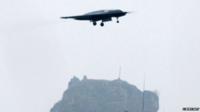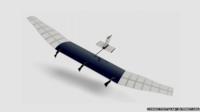BT is claiming to have made a "big breakthrough" with fibre broadband, which could see homes and businesses see speeds rise to 1Gbps (gigabit per second).
A trial of so-called G-Fast technology has managed download speeds of 800Mbps (megabits) and upload speeds of 200Mbps.
The trial is significant because it utilises existing technology.
BT has been criticised for its continued use of copper lines.
So-called Fibre to the Cabinet (FTTC), which uses a combination of fibre and copper lines, is BT's preferred technology for broadband rollout.
It is significantly slower than Fibre to the Premises technology (FTTP) but is much cheaper to deploy.
FTTC also gets slower over distance because it relies on copper for the last part of the connection.
It means homes that are further away from BT's green street cabinets will have slower speeds.
BT claims that the new technology can achieve good speeds over longer lines of 66m (216ft), which it said encompasses 80% of connections.
G-Fast technology has been tested at BT's research laboratory at Adastral Park in Ipswich. It is due to open a new ultrafast broadband lab where it will continue to test its potential.
BT said commercial equipment could be available from manufacturers by December 2015, but the company has made no decisions about rolling the technology out yet.
The new technology could also be useful to businesses which currently rely on dedicated lines that run on ethernet.
"We see G-Fast as a very promising technology with significant potential," said Dr Tim Whitley, managing director of research at BT.
"BT has a long history of pushing the boundaries in telecommunications, from the earliest days of the electric telegraph to today's global fibre networks, and it's crucial that we stay ahead of the curve for the benefit of our customers and shareholders."
Rival Virgin Media is also experimenting with new ways to boost speed - including a trial in a Cambridgeshire village, using narrow-trenching.
The method means engineers can lay the cable faster and the trial to 100 houses in the area achieved 1Gb speeds.
Need for speedOvum analyst Matthew Howett thinks the technology could be beneficial to both consumers and businesses.
"Given the huge costs involved in a full fibre solution, and the challenging economic environment, it's important to make the most of, and extend the life of technologies already deployed - in the most cost effective way," he said.
"This should result in quicker wins for consumers and businesses at a favourable price."
The debate about how much speed consumers and businesses need has grown louder in recent months.
The Federation of Small Businesses (FSB) recently said that the government's target to have superfast speeds of at least 24Mbps in 90% of homes by 2017 lacked ambition and needed a rethink.
It called for a minimum of 100Mbps by 2030.
Labour has also jumped on the speed bandwagon and pledged to increase broadband speeds if it wins the next election.



